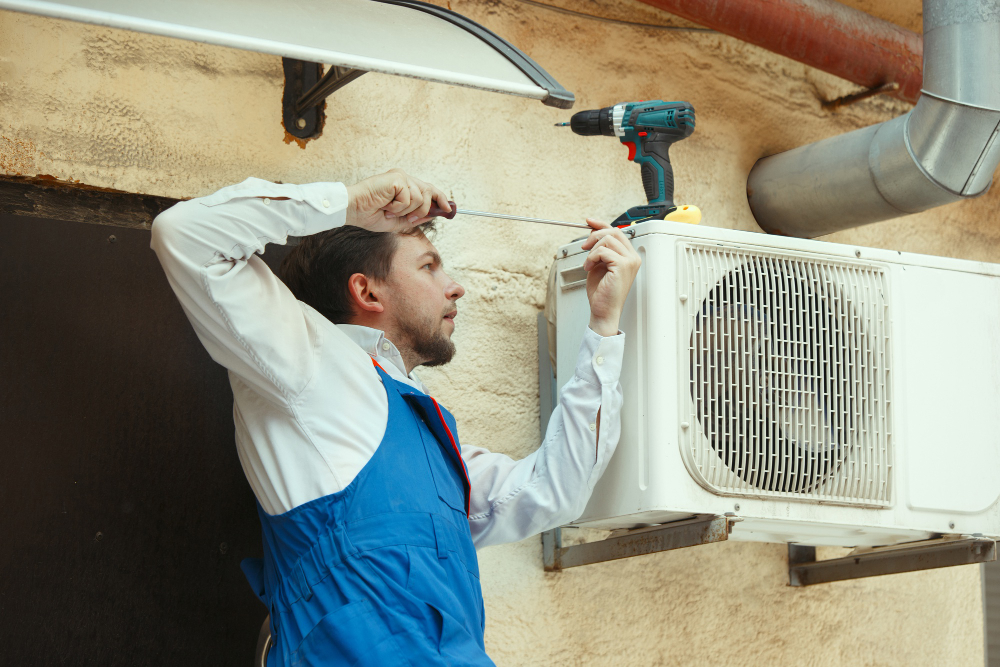In today’s world, energy efficiency is not just a buzzword; it’s a necessity. With the rising costs of electricity and the increasing awareness of our carbon footprint, it’s essential for businesses, especially air conditioning companies, to adopt energy-efficient practices. This guide aims to shed light on the importance of energy efficiency and how air conditioning companies can achieve it.
Energy use to cool homes and businesses has increased significantly, and using more efficient air conditioning units from a specialist air conditioning company such as CSD air conditioning can drastically decrease consumption and emissions associated with cooling.
We will also look at EER (Energy Efficiency Ratio) or SEER (Seasonal Energy Efficiency Ratio) ratings for systems as it is an essential consideration for air conditioning installation. These ratings demonstrate how efficiently its operations will run.

Why is Energy Efficiency Important for Air Conditioning Companies?
- Cost Savings: Energy-efficient systems consume less power, leading to significant savings on electricity bills.
- Environmental Impact: Reducing energy consumption means fewer carbon emissions, contributing to a healthier environment.
- Improved Performance: Energy-efficient air conditioning systems often perform better and last longer.
- Customer Satisfaction: Clients are more likely to choose companies that prioritise energy efficiency, as it reflects a commitment to sustainability and cost savings.
Tips for Improving Energy Efficiency:
- Regular Maintenance: Ensure that the air conditioning systems are regularly serviced to maintain optimal performance.
- Upgrade Older Systems: Older systems tend to be less efficient. Consider upgrading to newer, energy-efficient models.
- Proper Installation: Ensure that the systems are installed correctly. Improper installation can lead to energy wastage.
- Use Programmable Thermostats: These allow for better temperature control and can automatically adjust the temperature when not needed, saving energy.
Energy Efficiency Ratings: Understanding the Labels
When selecting an air conditioning system, it’s crucial to understand the energy efficiency labels. In the UK, the Seasonal Energy Efficiency Ratio (SEER) and the Energy Efficiency Ratio (EER) are commonly used.
| Label | Description |
|---|---|
| SEER | Measures the cooling efficiency of an air conditioner over an entire season. A higher SEER rating indicates better efficiency. |
| EER | Measures the cooling efficiency of an air conditioner at a specific outdoor temperature. A higher EER rating indicates better efficiency. |
EER
EER ratings on your air conditioner are vital in understanding its efficiency. This number measures the cooling output divided by electricity consumption to give an idea of how much energy will be used by your system each hour and allow you to compare different systems until finding one suitable for your home or business.
An air conditioner engineered by a standard air conditioning company contains an Energy Guide label providing information on its EER rating. This rating measures the energy consumed and savings anticipated over a given year by comparing performance capacity with national average electricity costs, giving you an estimate of how much money is likely saved each year.
EER measures the ratio between cooling power and electrical input power, with higher numbers indicating better efficiency. EER measurements are determined using laboratory testing conditions which reflect real world climate and humidity conditions that your AC equipment may encounter, providing a good indicator of its peak temperatures efficiency; an EER of 10 or greater should always be sought out as this provides you with optimal results.
SEER Vs EER
People often mistake SEER for EER; however, these ratings don’t compare as directly; SEER ratings don’t apply everywhere and can vary depending on local weather conditions. SEER measures seasonal energy efficiency which takes into account any weather fluctuations when making its determination; it will give an approximate idea of a unit’s efficiency in your climate.
EER ratings, on the other hand, are universal ratings applicable across all locations. EER measures the ratio between cooling capacity and electrical input power for your air conditioner’s Energy Guide label – making this an effective way of comparing different models’ efficiency levels and finding one best suited to your needs.
Choose an energy efficient air conditioner is key to both your home and the environment. Air conditioners with higher SEER and EER ratings will help conserve energy and save on utilities; even though these systems may cost more upfront, over time their savings on your utility bill will pay for themselves in energy bill savings.
Energy efficient air conditioning will not only save money and reduce carbon emissions, but can also provide you with greater comfort. To learn more, reach out to a professional service in your area who will gladly answer any queries and assist with selecting an energy-efficient system to meet your specific needs. In addition, they’ll explain how energy-efficient cooling works so you can make an informed decision regarding purchasing one.
Conclusion:
For air conditioning companies, energy efficiency is not just about saving money; it’s about providing value to clients, protecting the environment, and ensuring the longevity of the systems. By understanding the importance of energy efficiency and implementing the tips mentioned above, companies can ensure a sustainable and profitable future.
We hope this guide has been helpful in shedding light on the importance of energy efficiency for air conditioning companies. Remember, every small step towards efficiency counts!


